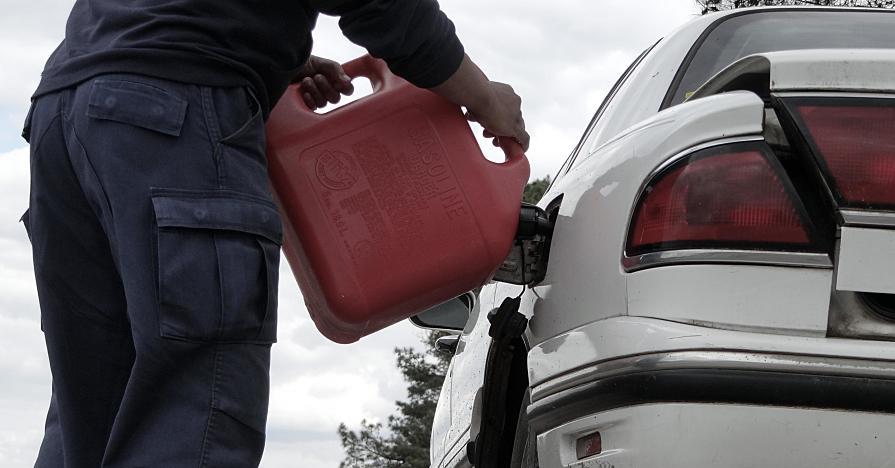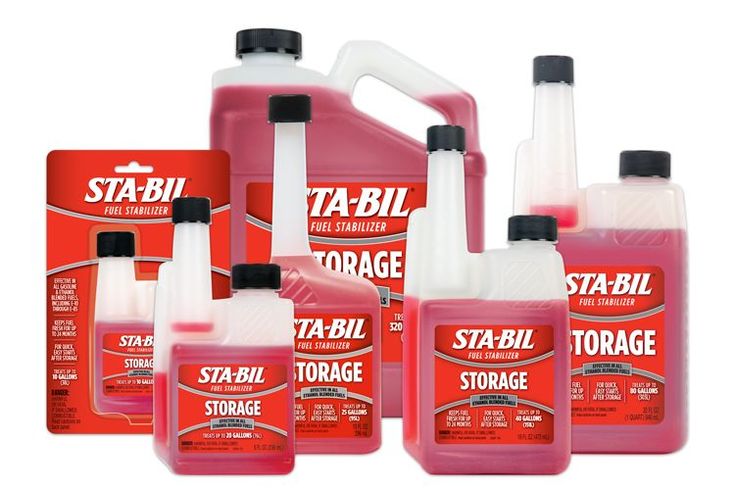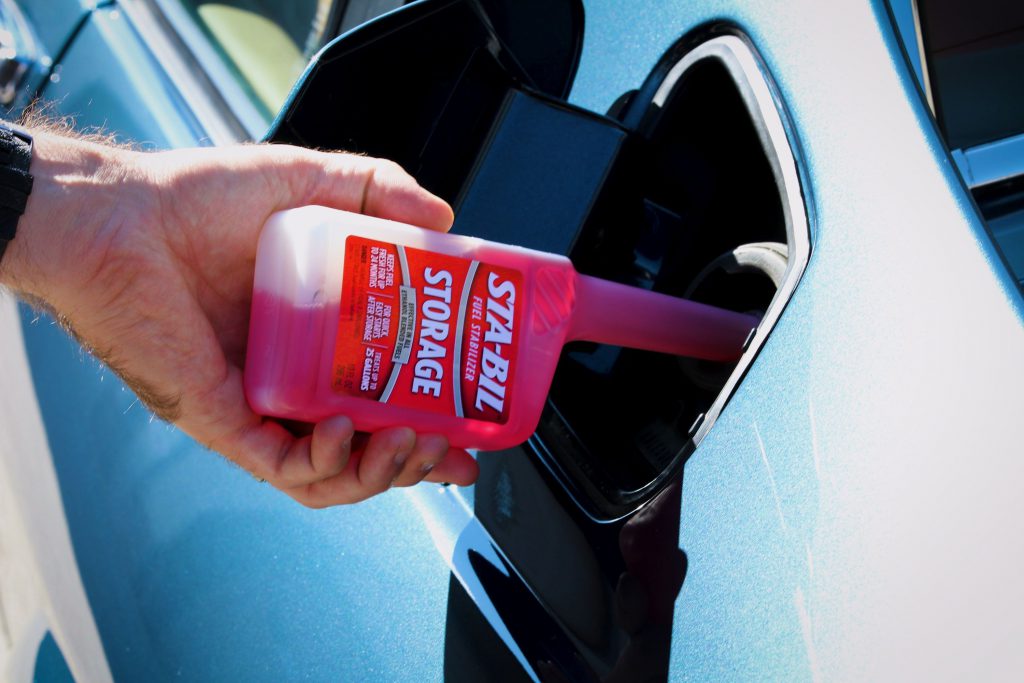Fuel stabilizers are known for their ability to remove impurities in the fuel before it is put into the combustion chamber and keep the gas from spoiling after a while if you don’t use the car. Not only save fuel but fuel stabilizers also help reduce emissions that cause environmental pollution.
As can be seen, the fuel stabilizer is an important part of the maintenance process. However, How do we know the fuel stabilizer is still in good condition? or “does fuel stabilizer go bad?” Car From Japan will help you clear this problem.

Contents
Why Do You Need a Fuel Stabilizer for The Car?
You can ensure that the fuel is always fresh if your vehicle is used regularly. What happens if you leave that fuel in the tank without using it for several months. The answer: It will cause the oxidation state of the fuel tank. Oxidation is a chemical reaction between fuel and oxygen that leads to the formation of a precipitate in the fuel tank and can cause damage to the vehicle if not cleaned properly before restarting.
In addition, when humid air penetrates the fuel tank there will be condensation, which will cause your car to turn off the gas, promote corrosion, and won’t start the engine during the period of time when the car is not in use for a long time.
How can we store the fuel to make sure that it’s always fresh to use even after a long time?
In this case, a fuel stabilizer will help you! So what does the fuel stabilizer do? They are typically petroleum products, a mixture of antioxidants and lubricants designed to bond gasoline, repel water, and limit evaporation. When you equip a fuel stabilizer to the tank at the end of the driving season, it will prevent oxidation and limit the decomposition process of chemicals over time.
The result: it will keep the good condition of the fuel as it did before you store the car. The fuel stabilizer will prevent the build-up of other solids that could potentially damage your car’s engine. A fuel stabilizer you install in your vehicle can keep the fuel fresh for up to 24 months, and it works with both ethanol and non-ethanol fuels.
>> Read more: How Long Does it Take for Gas to Go Bad
Just make sure there is fresh gasoline and the tank is about 95 percent full. You simply pour it into the gas tank and then run the engine for a few minutes to distribute the treated fuel to the rest of the fuel system. Only an easy step, the fuel can remain fresh for 24 months.
So “Are fuel stabilizers necessary or not for car care?” The answer is: Fuel stabilizers are not required. When you drive or use a car, gasoline burns out before it begins to evaporate and degrade. Some experts fear corrosion when using fuel stabilizers, but it is very rare to happen. However, we recommend that stainless steel parts and engines that do not use ethanol should not use a fuel stabilizer. In older cars or you let your car sit for several months, fuel additives will improve your engine’s performance because older cars tend to have a lot of dirt build-up in the fuel injectors. Additives can help clean up those gunks and prevent costly car maintenance.
Many drivers wonder, ”Should we use fuel additives for car engines?” After a long time of operation, the friction of the engine will create a lot of soot. Carbon soot is often found in the combustion chamber, spark plugs, fuel injectors, and pistons, which reduces the car’s performance and causes more fuel consumption. Choosing the right fuel additive for the engine will help the fuel be completely burned, and dissolve plaque in pipes, and injectors. However, in order to use it effectively, drivers need to understand what type of car engine is and need advice from experts.
>> Related posts: How Long Does it Take for Gas to Go Bad
Does Fuel Stabilizer Go Bad?

To answer the question, we should find out “how long does a fuel stabilizer last?” The lifespan of the stabilizer lasts will depend on the specific product you purchase. But normally, fuel stabilizers can be stored for a minimum of two years but are recommended for use within 1 to 2 years. However, if stored properly, they can be stable and remain effective for an indefinite period.
As you know, a fuel stabilizer can protect gasoline from oxidation. But it cannot resist this process by itself. At some point, the components of fuel stabilizers will also begin to oxidize, and the resulting changes reduce the ability to continue to provide effective protection for gasoline. The oxygen molecules immediately begin the oxidation process as soon as the fuel stabilizer is opened. That’s why you should only use it for a certain period of time (2 years) after opening bottles.
If the color of the fuel stabilizer changes to dark or brown, the liquid should be replaced as it has lost its effectiveness. These liquids can be precipitated and form plaques in the bottle. It’s one of the obvious signs that tell you: the fuel stabilizer goes bad.
For unopened bottles, you can completely store and use them for a longer time in a dry environment condition. Although oxygen can still seep into the fuel stabilizer, it happens at a much slower rate than when the bottle has been opened. We recommend that you shouldn’t store the fuel stabilizer in excessive heat conditions because it can boost the oxidation process fastly.
Final Word For The Topic
At times, fuel stabilizers seem attractive and are marketed to consumers as a means of increasing car power. It is said to be able to freshen up the fuel system or extend the life of your car engine. However, experts note that it is really only good for a car that will not be driven for a long time. And, the fuel stabilizer also has an expiration date. You should not use it for too long after opening the lid.



